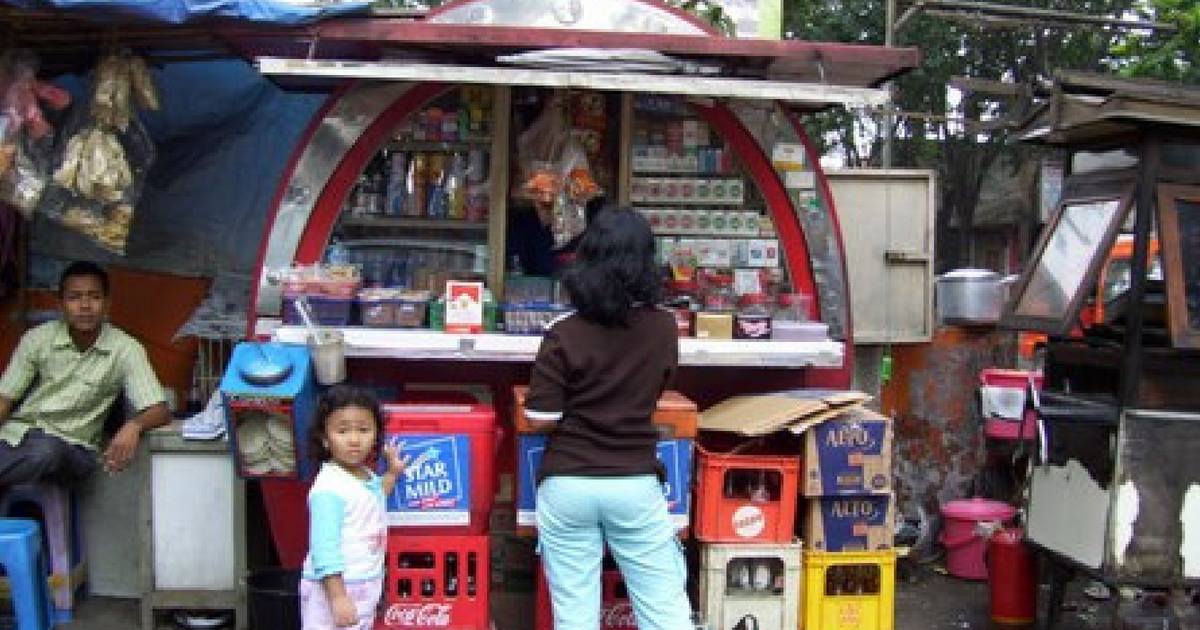The Indonesian government recently touted new economic data showing that poverty levels in the country had reached a historic low in March 2018 of 9.82% (the first time it had dropped below the 10% mark). But that same data also once again spotlighted something well-known to Indonesian officials for a long time: on top of their disastrous health consequences, cigarettes also remain one of the primary causes of poverty among low-income Indonesian families.
Despite that, the government still seems stubbornly unwilling to pass strong national tobacco control regulations or increase cigarette taxes significantly (even though polls suggest that a vast majority of the public wants that) in order to decrease demand.
Minister of National Development Planning Bambang Brodjonegoro does have a plan to address the connection between cigarettes and poverty in a different way, however, one which we imagine would be quite controversial if implemented.
“I have submitted to [Harry Hikmat, the director general of social security at the Ministry of Social Affairs], a plan stipulating that, in the future, all families receiving PKH or who receive BPNT will no longer allowed to smoke,” Bambang said during a forum yesterday at quoted by Kompas.
PKH is the abbreviation for Program Keluarga Harapan, a conditional social assistance program aimed at accelerating poverty reduction through the use of Conditional Cash Transfers (CCT) which are used to encourage participants to utilize various health and education services, especially those aimed at pregnant women, children and the disabled. BPNT is the government’s non-cash food assistance program under which recipients are eligible to get eggs and rice worth up to IDR110,000 (US$8) per month.
Bambang, whose ministry helps oversee the programs, said that implementation of the non-smoking regulation would require government agents out in the field to check in on recipients to make sure they weren’t lighting up.
“The point is that PKH is conditional and one of those conditions is that the family’s living and spending patterns have to conform to what is stated in the PKH manual,” Bambang added.
Bambang said there was strong data to support making non-smoking a requirement of the programs, considering it showed around 10-11% of the average poor household’s budget going to paying for the patriarch’s tobacco addiction
The results of a survey conducted by The National Commission on Tobacco Control and the Center for Social Security Studies at the University of Indonesia (PKIS-UI) showed that respondents from lower income households tended to have significantly higher rates of smoking. Those with a family income of less than IDR 2.9 million had smoking rates of 44.61% while those with income levels between IDR 3 million and IDR 6.9 million were 41.88%. Smoking rates of those from households with incomes of over IDR 7 million were only 30.91%.
In light of those facts, making non-smoking a requirement of poverty alleviation programs seems like a reasonable idea. But the chance of this plan actually getting implemented seem remote. On top of the difficulty of strictly enforcing such a condition, we imagine the potential backlash from pro-tobacco business and government forces would be strong.
Even in recent years, the Indonesian Government officials and tobacco industry lobbyists have consistently been able to hold off stricter regulations and higher tariffs on cigarettes by arguing that the economic benefits that tobacco brings to Indonesia outweigh the negatives. They often focus on the plight of poor tobacco farmers who might be put out of work if the government were to crack down on smoking (though some will admit to the crucial importance of tobacco excise taxes to government revenue).
But the real pressure comes from foreign-owned tobacco companies who seek to keep Indonesia’s cigarette market growing strong to offset their losses in countries that wised up and made cigarettes expensive and hard to access long ago as comedian John Oliver explained in this brilliant segment (also featuring an appearance by Indonesia’s infamous smoking baby)





Reader Interactions